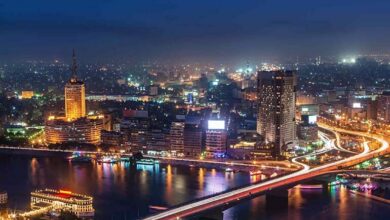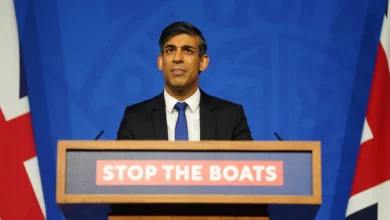Egypt has been through a critical time in its history. In turn we should deal with it critically, but wisely and humanely at the same time.
No one will be happy about the collapse of Egyptian state institutions. No one will be happy if the country descends into a mere venue for violence and fighting either. The Muslim Brotherhood takes responsibility for the deterioration we are witnessing. Intimidating people, as well as their sectarian discourse, will not pressure any wise person into defending them or even sympathizing with their cause. However, we should remember that depending on security solutions only to confront the issues at hand will not found a democratic state, nor a secure one. It will instead have the following impact.
1. Destroying the rule of law
It’s true that the Brotherhood regime didn’t respect the rule of law, being the first to issue a draft law to control the judiciary while its supporters besieged the Supreme Constitutional Court. However, many voices have been calling throughout the past two years for implementing the law, which led not-so-few Egyptians to become convinced of the importance of enforcing the law with a view to establishing a base level of justice. Today, we are witnessing clear violations by the security services. The problem is not the absence of a mechanism for judicial investigations, but instead reaching a way in which it does not destroy the rule of law or make the law hard to enforce.
2. Establishing security as an alternative to politics
It’s true that the current crisis demands strict security towards armed attacks, but let us remember that Mubarak’s security system – which to many now seems preferable to Morsy's own sectarian one – suffered a basic problem that led to its demise. All political issues, like labour, the Muslim Brotherhood and sectarianism, were transformed into security ones. State security officers used to mediate between protesting labour and the government, although this role should have been played by politicians (who were ruled out) or trade unions’ members (who were polarized).
3. Creating a difficult relationship between security and radicalism
We have dreamed of a doctrine based on the security of citizens, not just the security of the state and Egypt itself, which should be a foregone conclusion. Oppression only will not benefit. Only those who are carrying arms and intimidating citizens should be involved. The door should be open for political solutions. Under Morsy's rule, exclusion turned a lot of young men into Molotov cocktail throwers. Here it could turn Brotherhood supporters into terrorists.
May God protect Egypt and allow us all to build a free, inclusive and humane society.
Edited translation from Al-Masry Al-Youm




